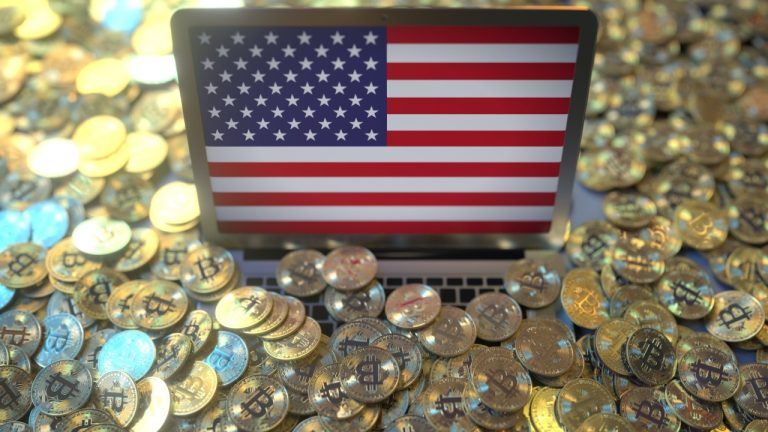
Here are some of the leading environmentally-conscious projects within the crypto industry and how they are utilizing their technological influence to good effect.
Earth Day, a 52-year-old tradition celebrated annually on April 22, provides an opportune moment for the world’s citizens to reflect upon their environmental progress, as well as rally support for political policy-making, cultural climate awareness and individual commitments to sustainability.
The emergence of blockchain and Web3 has provided the core architecture for a structural remodeling in public transparency, and as such, a technology that has the potential to be harnessed in service of the visions established by the United Nations Sustainable Development Goals and the Paris Climate Accord.
Cointelegraph spoke to a number of environmental experts to gauge their opinions and ideas on how Web3 companies can make positive impacts in the global climate endeavor by utilizing the power of blockchain technology.
Sander DiAngelis, the head of growth and partnerships at Toucan Protocol, advocated for an amalgamation of physical and digital initiatives, noting that “tokenized carbon credits” are enabling the creation of “virtual carbon sinks that generate real-world planet-positive impact.”
Coinbase’s philanthropic climate program, which allocates 1% of its corporate revenue towards projects seeking to enhance the democratization of cryptocurrency, recently awarded a $500,000 ecosystem grant to Toucan Protocol to build their carbon markets infrastructure.
Announcing: @Coinbase Giving x Toucan: Ecosystem Grants for Regenerative Innovation
— Toucan Protocol @ETHAmsterdam (@ToucanProtocol) April 20, 2022
How this looks? Coinbase Giving is granting $500k to Toucan to kickstart our Builder Hub!https://t.co/C63JcKqbFF
Details pic.twitter.com/BG6B5jk7bZ
Projects such as Pachama and Dovu are utilizing artificial intelligence and hash graph technologies, respectively, to calculate, quantify and report carbon footprint data for the purpose of enhancing accountability and transparency within the corporate and Web3 industries.
In partnership with action groups such as REDD+, Pachama have established a number of restorative ecosystem projects such as the Colombian coastal deforestation-prevention scheme titled Bajo Calima y Bahía Málaga. Nearing the end of its ten-year term, over 1.2 million metric tonnes of carbon have been sequestered from the environment via credit issuance.
Within the crypto space, organizations such as the Climate Chain Coalition and Crypto Climate Accord — both of whom earned the spot of 34th in Cointelegraph’s Top 100 of 2022 list — have made considerable advances in encouraging collaboration, and enacting environmental pledges with the crypto space.
Mitch Liu, the CEO of blockchain video streaming platform Theta Network, shared his belief that the cultural significance placed on the climate change crisis could instigate the creation of cutting-edge decentralized solutions.
He cited ClimateDAO’s work in “pooling its members' resources to buy shares in big, polluting companies to make their activities more sustainable from the inside” as a prime example of this innovation. He continued on to say:
“As NFTs have entered the mainstream conversation over the past year, the environmental backlash has become fierce. There has been a pernicious assumption that all NFTs are bad for the environment."
Liu says that this blanket assessment "completely ignores Proof of Stake blockchains like Theta, which use 0.05% of the energy compared to chains like Bitcoin and Ethereum.”
It's time to settle it with a poll. Which Metaverse token do you prefer?
— Cointelegraph (@Cointelegraph) April 19, 2022
Christian Hasker, Chief marketing officer of Hedera Hashgraph spoke about “striving for a clean Web3” within the distributed ledger technology (DLT) space, emphasizing the industry's collective obligation to ensure that “We not only have the knowledge and solutions to ensure that the next generation of the internet is sustainable – but crucially, we have a responsibility to do so.”
Prior to pledging Hedera’s continued focus on building green applications with the support of their twenty-six council members, he cited the negative perception of Proof-of-Work consensus mechanisms, even those adopting environmentally-friendly principles, stating:
“It is my firm belief that carbon neutrality at Layer 1 is the only way to deliver on the promise of a sustainable future built on DLT. The greatest way to preserve energy is to not use it in the first place — a sentiment that is shared by mammoth industries and large organizations which are introducing zero carbon goals.”

